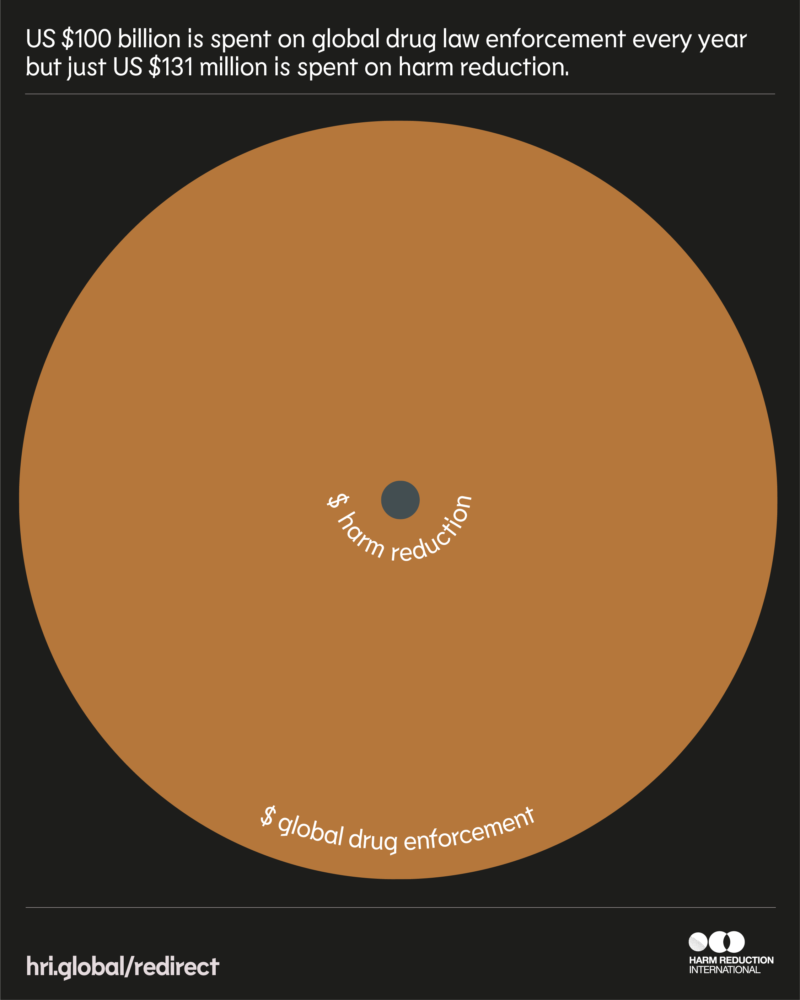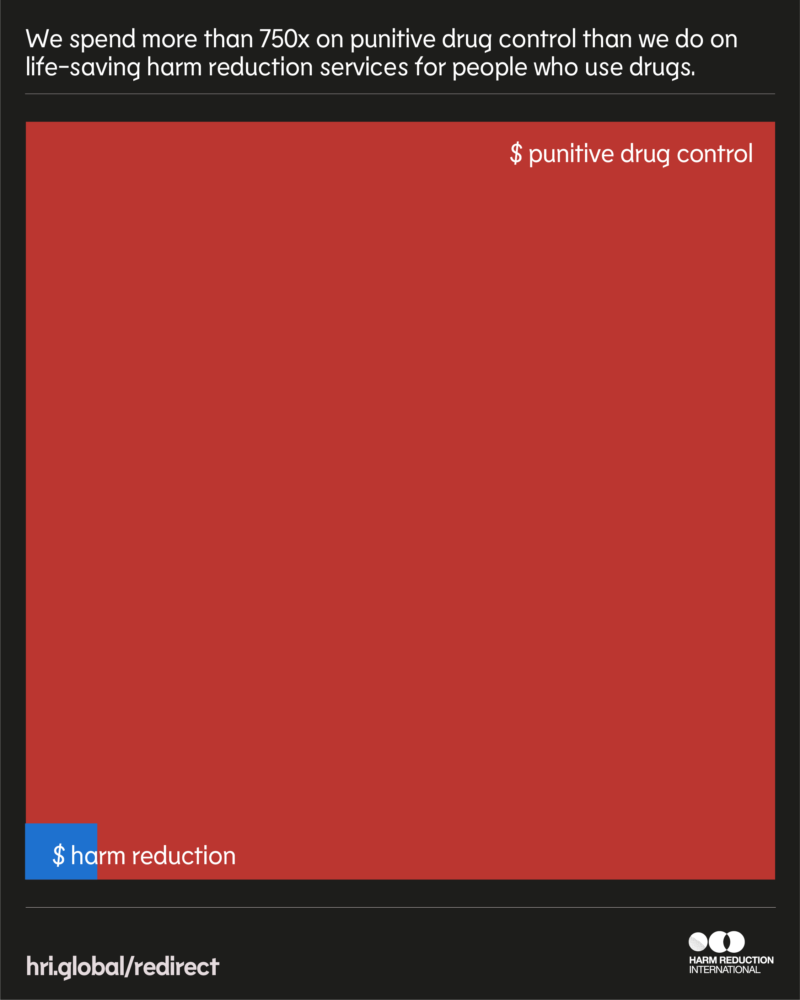The case for redirecting funds from ineffective drug law enforcement to harm reduction – spotlight on six countries in Asia.
Governments must divest from punitive drug law enforcement and invest in harm reduction
Each year more than USD 100 billion is estimated to be spent on global drug law enforcement. This is over 750 times the amount allocated to harm reduction services for people who use drugs. Despite overwhelming evidence in favour of following a health and human rights-based approach to drug control, governments around the world, including many in Asia, continue to prioritise punitive responses to drugs.
This approach has deterred, and in some cases prohibited, people who use drugs from accessing health and social services. It has also fuelled mass incarceration, extrajudicial killings, torture, the use of the death penalty, discriminatory policing and the stigmatisation of people who use drugs. Women who use drugs remain particularly vulnerable to abuse, discrimination and stigmatisation. Women also constitute the fastest growing demographic group in prisons in many countries. In Thailand and the Philippines, for example, the ratio of women in prison who have been sentenced for a drug offence is 82% and 53%, respectively. Compulsory drug detention and rehabilitation centres still operate in several countries in Asia, including Vietnam, Cambodia and Sri Lanka, despite UN agencies condemning them as ineffective and a violation of human rights.
Governments in Asia have committed to developing social protection safety nets, removing social and structural barriers that prevent people who use drugs from accessing HIV services, and to ending AIDS, eliminating hepatitis C and providing universal health care by 2030. Yet harm reduction services in Asia are grossly inadequate and underfunded, even though HIV and hepatitis C prevalence rates are high among people who use drugs.


Don't miss our events and publications
Subscribe to our newsletter